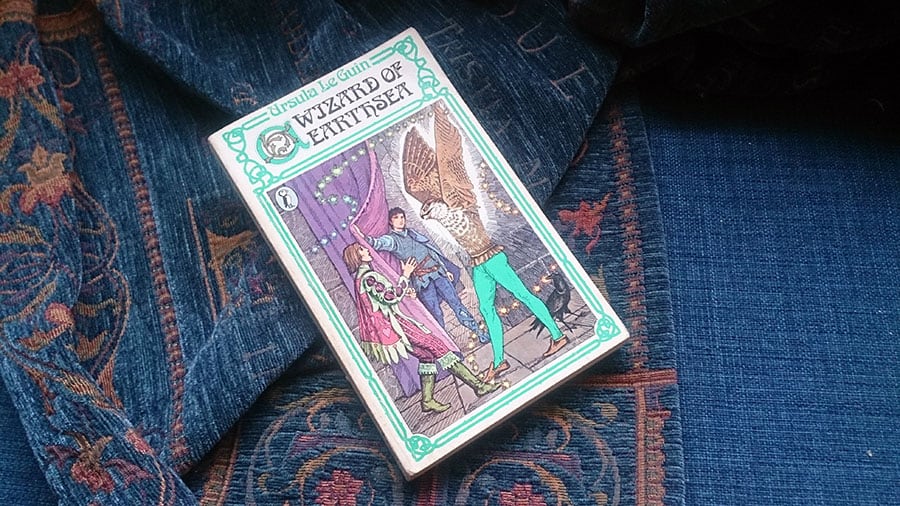Lately I decided to read Ursula K Le Guin’s Earthsea series, consisting of A Wizard of Earthsea, The Tombs of Atuan, The Farthest Shore and Tehanu. I’d tried to read the books while a young teenager, but never really got into them. Now as an adult, I’m really enjoying the style of writing. I’ve been thinking a lot about what makes these books special. Certainly, they’re very well written and the world is fascinating (Earthsea is a series of islands in an archipelago).
To me, the Earthsea books are Le Guin’s most human novels. They’re about the frailty of power and the nature of strength. Her hero, Sparrowhawk, is not a characture of so many heroes we’ve seen before, but a simple goatherder made archmage, a man whose humility and restraint make for a compelling story. There are no enormous battles between hoards of orcs and human warriors. Sparrowhawk’s battles are fought as much within the mind as without.
In the first novel A Wizard of Earthsea, Sparrowhawk is a young wizard must learn to deal with the evil he has brought into the world. A far cry from many of the stories where wizards must fight unspeakable evil, he is forced to reflect on himself and the consequences of his actions. The resolution is impeccable and very moving, in that the plot restraint shown by Le Guin compliments the world she creates. It feels like a desaturated world, one not filled with bright cities and pomp and circumstance, but dirty, real places, full of sadness and longing. The wizards in her books are practical – they make winds for the seas, heal pigs from illness and dye cloth in vivid colours.
My favourite so far is The Farthest Shore. Le Guin weaves in the importance of words into her magic, in that to create magic, one must know the true name of things in the old language. When the words begin to disappear, so magic is forgotten and the world thrown into chaos. It reminded me of Gabriel Garcia Marquez’ One Hundred Years of Solitude, when the town becomes infected with insomnia. He writes:
Thus they went on living in a reality that was slipping away, momentarily captured by words, but which would escape irremediably when they forgot the values of the written letters.
This kind of higher thinking perpetuates the Earthsea novels. Sparrowhawk often reflects on his own ability to do justice in the world without creating injustice. It sets the books apart from many of her counterparts, not being afraid to think deeply or be limited by the expectations of the genre. She writes:
When a rock is lifted the earth is lighter, and the hand that bears it heavier. When it is thrown the circuits of the stars respond, and where it strikes or falls the universe is changed. On every act the balance of the whole depends.
For any writers aiming to write fantasy, the Earthsea books are a must read. I wish there were more writers of humble fantasy, of kind and moving stories. The greatest fantasy novels have been about humble men and creatures, I think of the Lord of the Rings; while there are great battles and enemies, the saving of the world comes down to four small creatures called hobbits, with little power (and some would say common sense) between them. It makes for more interesting reading when the hero diverges from a reader’s expectations, and eventually goes beyond them.

Share your thoughts